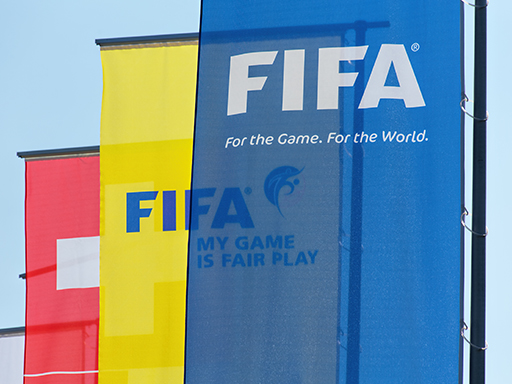4 Politics in sport: a football perspective
In this section you will be encouraged to think a little more systematically about how politics occurs within sport itself. Earlier in this session, it was suggested that politics refers to the activities associated with the governance of either a sport, a multi-sport organisation, a sporting region, facility (e.g., club) or league. This tends to occur at various different levels, ranging from the politics involved at local levels all the way up to the politics involved within international bodies. Here, you will begin your focus more specifically on international football.
It is unavoidable to discuss football and politics without acknowledging the accusations of corruption that has engulfed FIFA in recent years, particularly after awarding the 2022 World Cup to Qatar. Interesting to this story is how FIFA developed from a small, amateurish organisation into the global and political powerhouse that it is known today.
Activity 4 The development of FIFA as a global and political brand
Listen to the clip from the BBC ‘FIFA: Football, Power and Politics’ podcast. This extract focuses on the state of FIFA post João Havelange’s presidency (1974–1998), and the longer-term political aspects within the organisation. As you listen consider how presenter David Goldblatt and the other contributors explain:
- FIFA’s growth during and post Havelange’s reign.
- The subsequent political challenges faced by FIFA.
In both questions, try to relate your thoughts to the political themes that have been previously introduced.
Transcript: Audio 1 FIFA: football, power and politics
Discussion
- Post-Havelange, FIFA had become a far more affluent organisation and a global player in world politics, therefore exerting increased power relations and control over the game. As FIFA developed into a brand in its own right, their leadership positions became something worth fighting over and positions within the Executive Committee more attractive. FIFA developed further under Sepp Blatter’s reign as the sport became subject to commercialisation and more money filtered into the organisation.
- FIFA grew so quickly and dramatically that the organisation didn’t always know how to cope with their increased wealth, and the power relations of those in office became more important than ever. The fall of ISL (International Sport and Leisure – the Swiss sports marketing firm) saw a corruption scandal which had consequences for FIFA. Despite Swiss MPs’ ultimatum to FIFA for greater integrity, Executive Committee members were still suspended for soliciting votes during the 2018 and 2022 World Cup bidding process.

